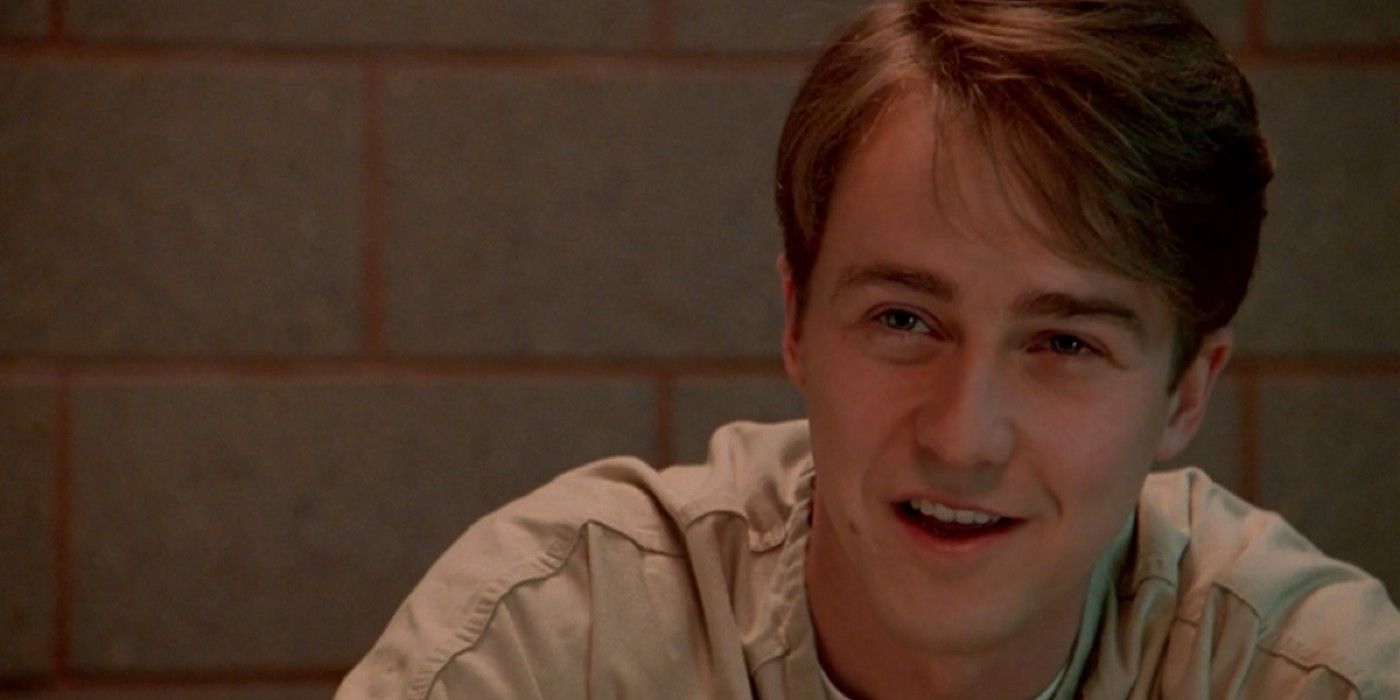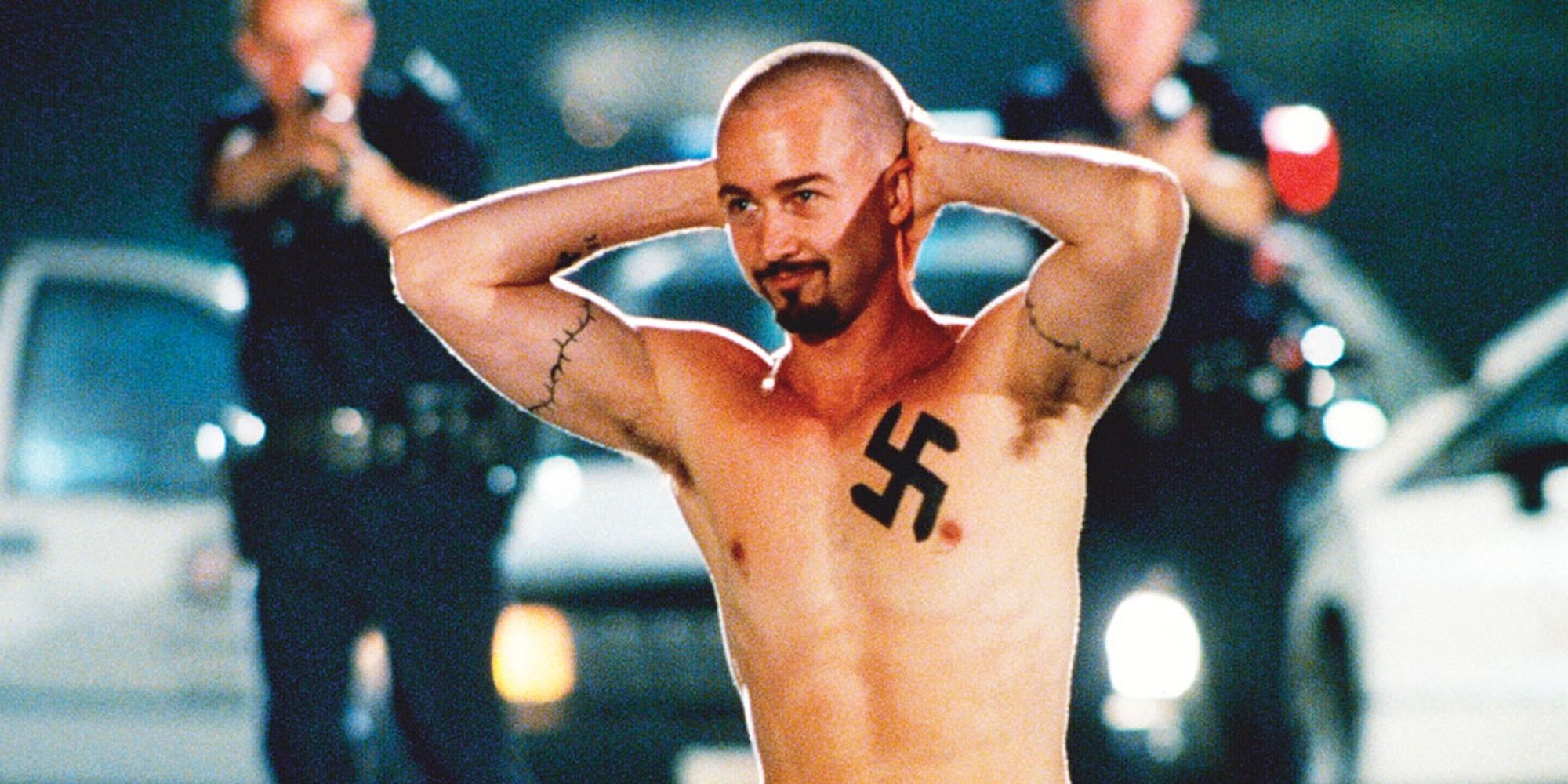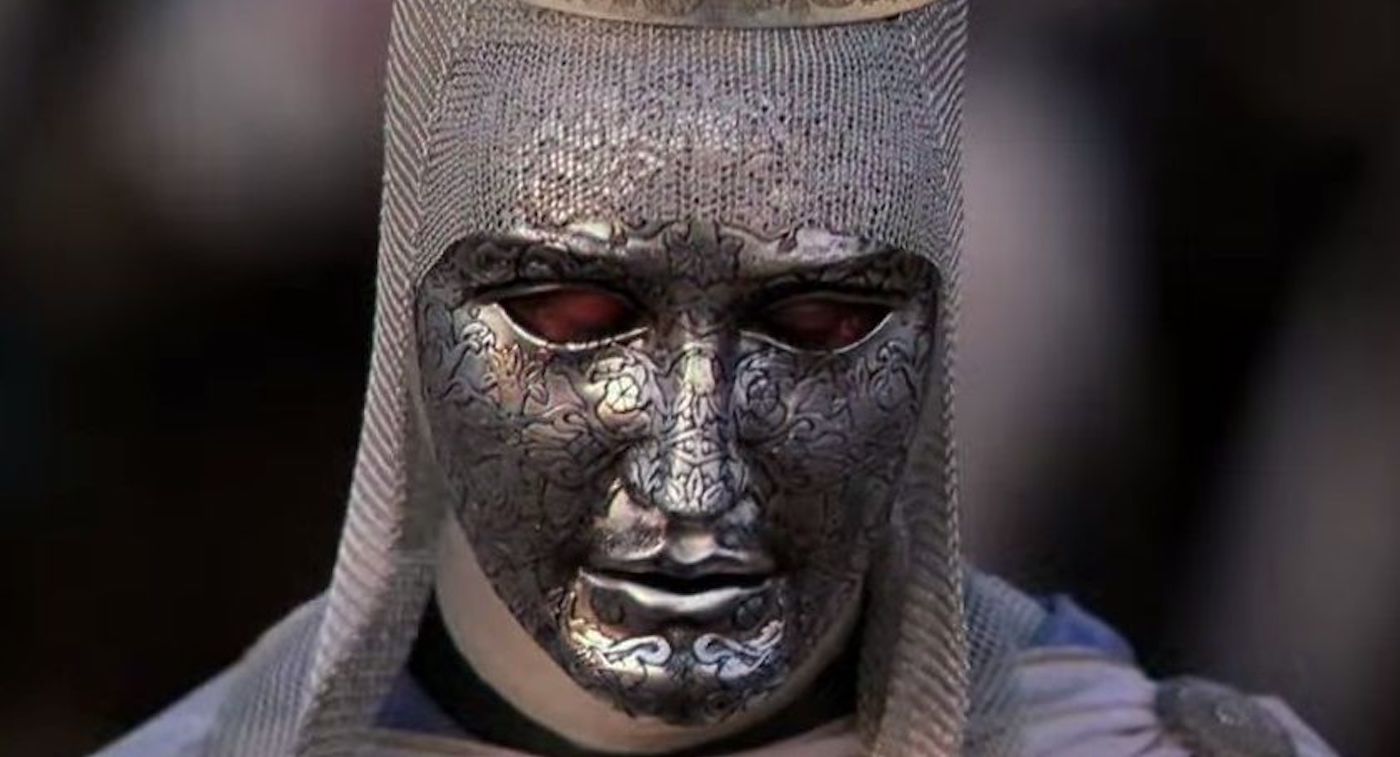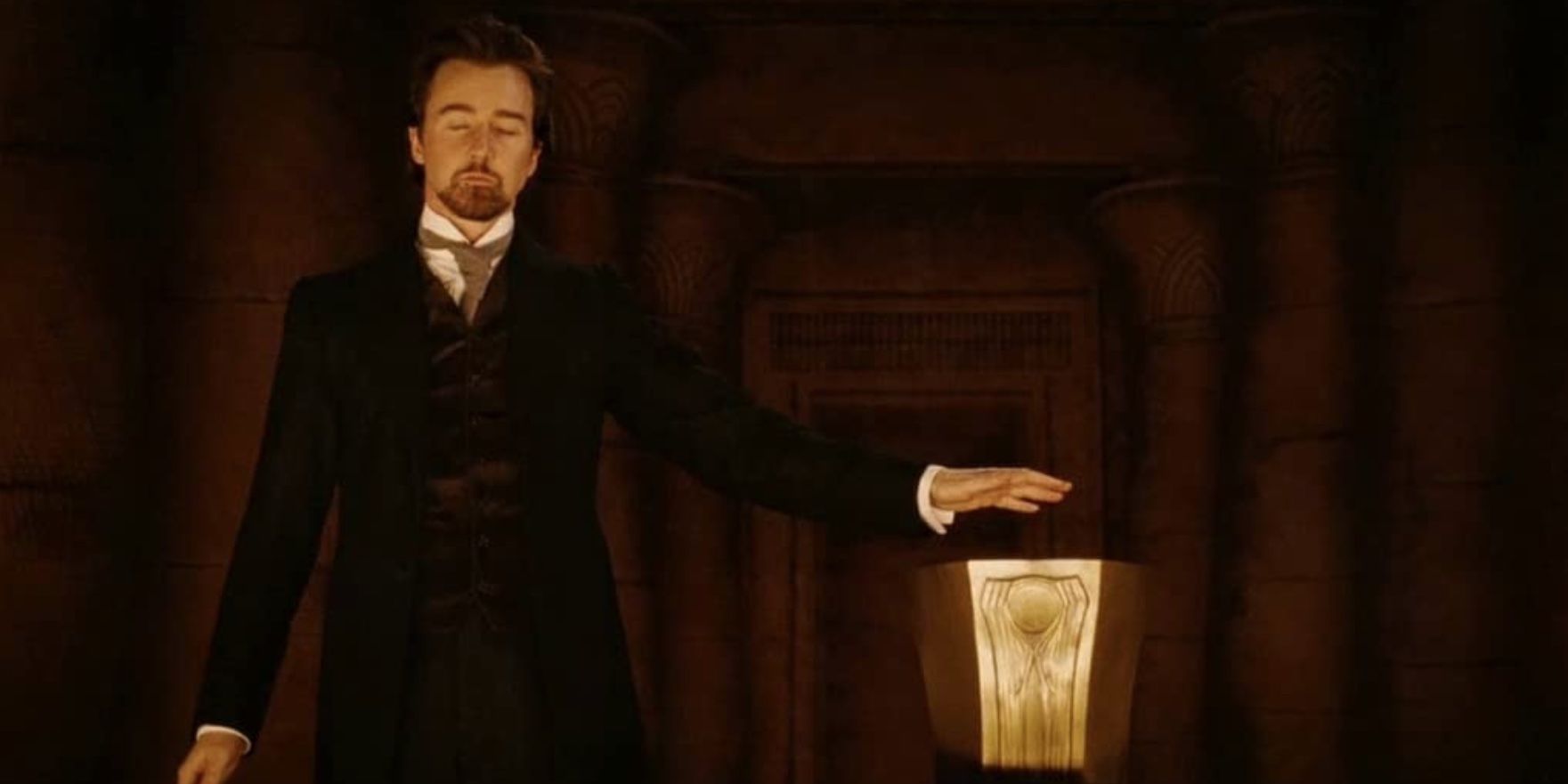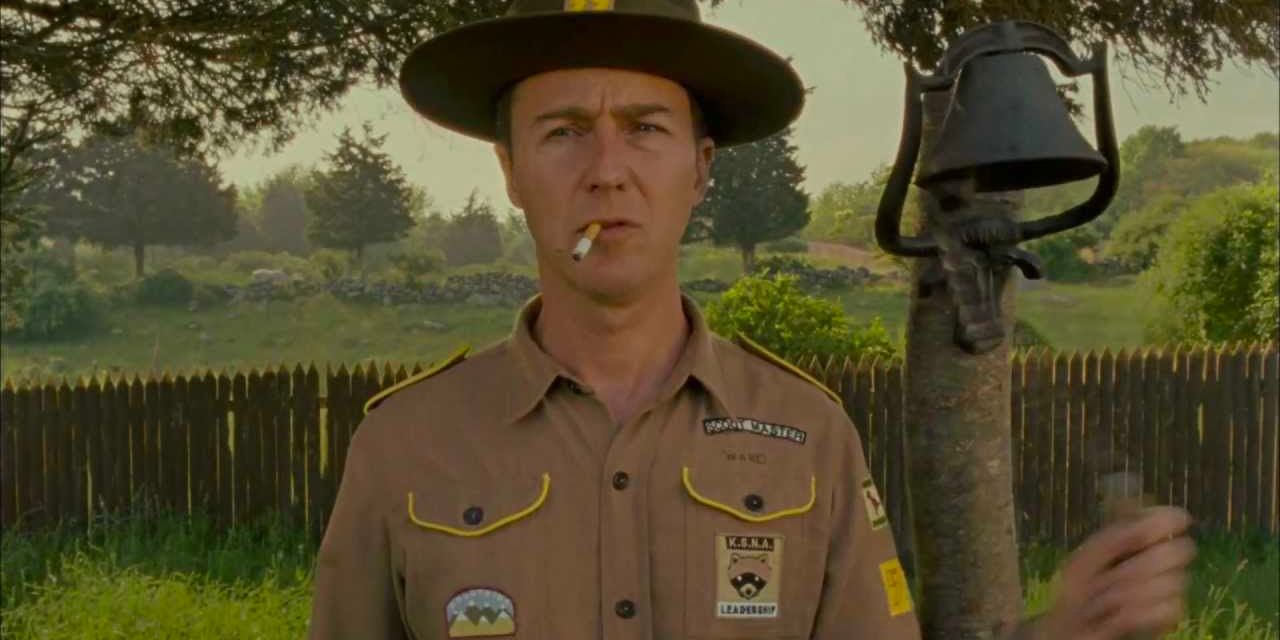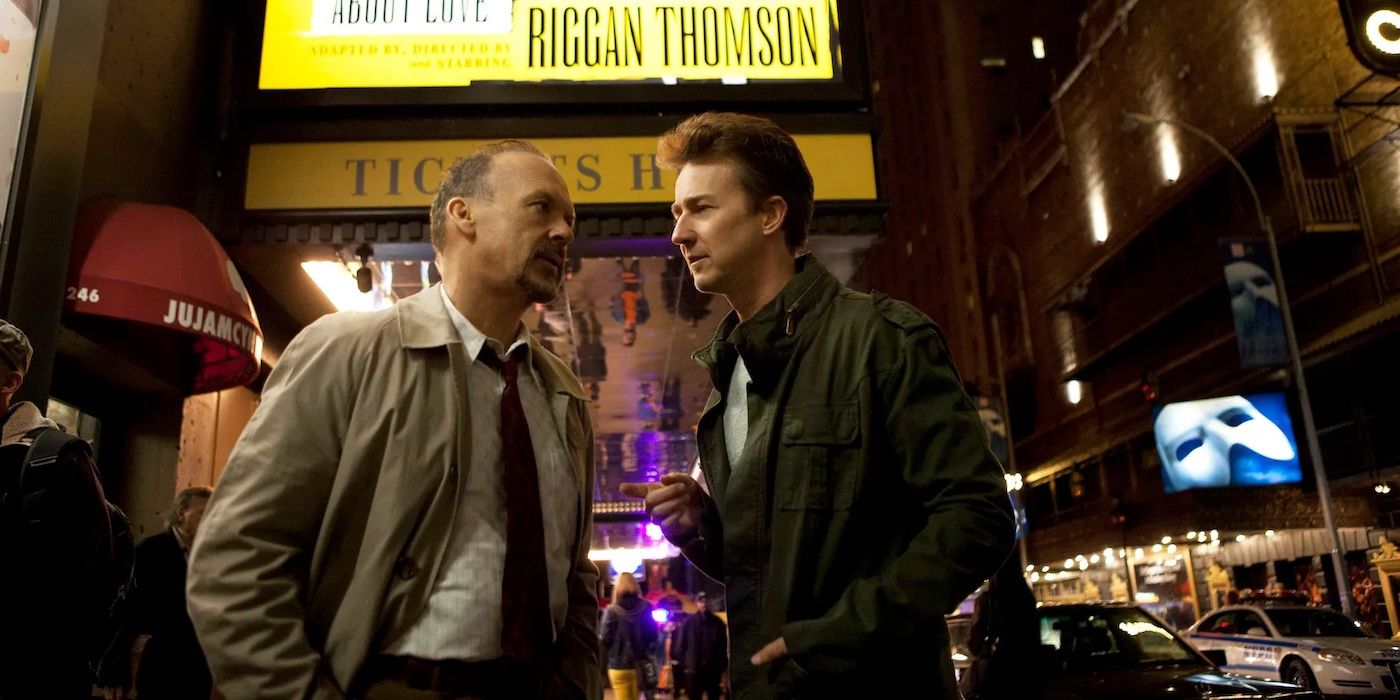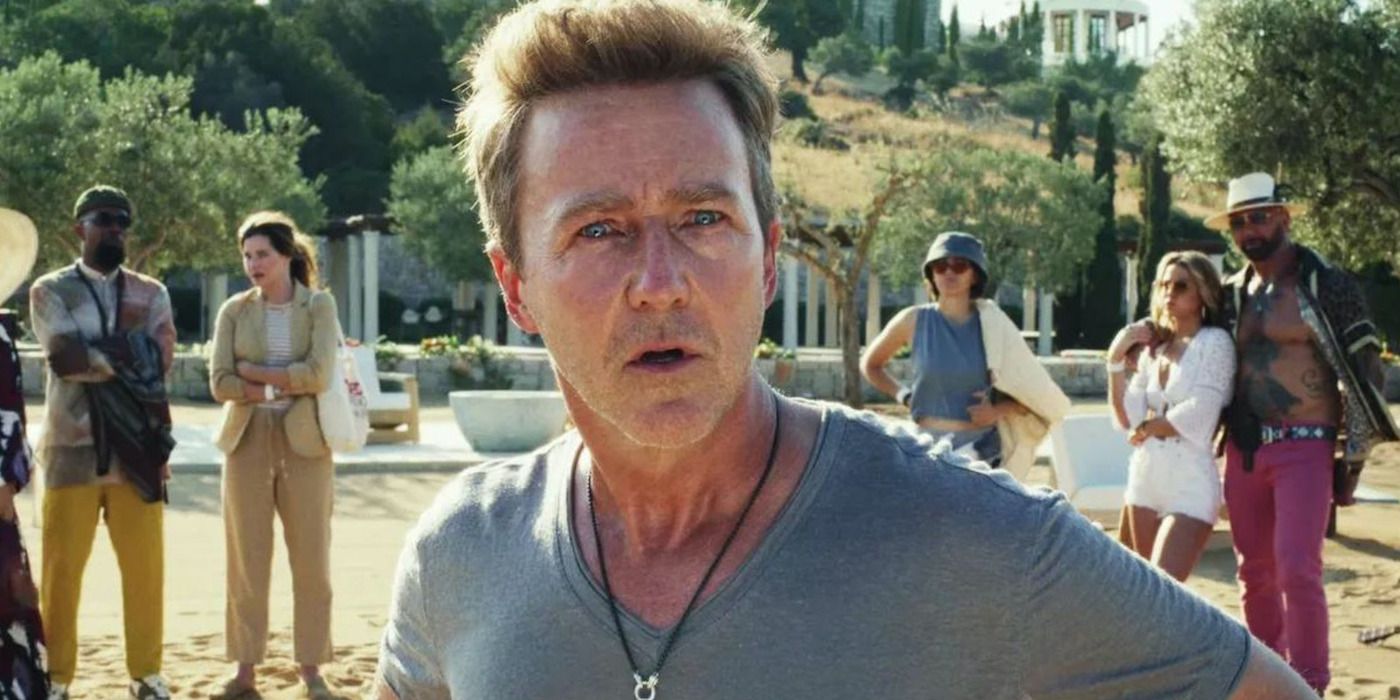Since his big screen debut in 1996's Primal Fear, Edward Norton has given audiences a number of affecting, high-quality performances. A versatile actor who clearly enjoys challenging himself and experimenting with different characters and genres, he's been around the block walking in many different shoes. Having received three Oscar nominations for wildly different portrayals in Primal Fear, American History X, and Birdman, Norton is among the elite cinematic performers of his generation. With his inclusion in Rian Johnson's ensemble sequel, Glass Onion: A Knives Out Mystery, it's only fitting to reflect on some of the actor's finest films and performances.
Primal Fear (1996)
When the courtroom thriller Primal Fear was released in April 1996, audiences had never heard of Edward Norton. But the 26-year-old from Boston, much like the young man he portrays in the film, had viewers eating out of the palm of his hand from day one. Holding his own with screen veteran Richard Gere in playing an altar boy accused of murdering an archbishop, Norton pulled off a multilayered performance within a performance. The film's twist ending, simultaneously pulling the rug out from Gere's overly confident attorney and the audience, is a testament to the young newcomer's persuasive abilities as an actor. Norton would take the awards circuit by storm that year in securing a Golden Globe and Oscar nomination for Best Supporting Actor. Not bad for your film debut.
American History X (1998)
Just two years after wowing audiences in Primal Fear, Norton gave what's perhaps his most raw and unnerving performance to date in Tony Kaye's drama. He plays Derek, a formerly imprisoned neo-Nazi seeking a path to redemption in preventing his younger brother, Danny (Edward Furlong), from succumbing to racial hatred. While far from comfortable viewing, the film works largely because of Norton's stellar work. He brings a level of authenticity and empathy to Derek, a tragic man whose intelligence, conscience, and soul have been hijacked by rage and prejudice. American History X would bring the actor his second Oscar nomination, firmly establishing him as a powerhouse to be reckoned with.
Fight Club (1999)
While David Fincher's Fight Club was initially met with a certain amount of bewilderment, it went on to become one of the definitive cult classics of the '90s. With the film's biting, satirical take on consumer culture and antisocial behavior, it effectively holds an unsettling mirror up to audiences. The narrative is largely propelled by Norton's deadpan, nihilistic, yet oddly insightful musings about the flaws inherent in society and individuals. Like Primal Fear, Fight Club's twist ending arrives with a bang, gleefully disorienting viewers and forcing them to reconsider what they've been watching the previous two hours. From beginning to end, Norton's committed performance takes audiences on a wild ride that, while at times disturbing, is full of wonderfully irreverent and darkly hilarious social commentary that still resonates 23 years later.
25th Hour (2002)
Directed by the always-assured Spike Lee and written by Game of Thrones showrunner, David Benioff (who adapted his own novel), 25th Hour spends a solemn and introspective day in the life of Monty (Edward Norton). On the cusp of spending seven years in prison for dealing drugs, Monty spends his final day as a free man with family, friends, and his girlfriend. Lee's film touches on many ideas and themes revolving around regret, fate, and a tremendous sense of loss and aimlessness in the immediate aftermath of 9/11. Monty is one of Norton's most somber and frustrated characters, who spends much of the film ruminating on and reckoning with his past choices and actions. While the film predictably doesn't have a happy ending, it's the melancholic journey and Norton's nuanced performance that count in making it one of the more memorable films in his wheelhouse.
Kingdom of Heaven (2005)
Ridley Scott's epic crusade-centric film is an often overlooked gem among his body of work. A meditative and thoughtful examination of religiosity and the moral qualms it presents, Kingdom of Heaven focuses on Balian (Orlando Bloom), a young man struggling through a crisis of faith amid warfare between Christians and Muslims in the 12th century. After journeying to the Holy Land, he finds comfort and solace through the brief but powerful guidance of King Baldwin (Edward Norton). It's one of Norton's most sensitive, subtle, and understated performances. A leper who dons a facemask to conceal his condition, we never see Baldwin's face, but the actor's turn as the empathetic and philosophical leader is one of the film's hallmarks nonetheless. He serves as the beating heart of Balian's conscience as the newly-knighted protagonist navigates treacherous waters of self-discovery and redemption.
The Illusionist (2006)
In yet another quietly affecting performance, Norton plays Eduard Abramovich in Neil Burger's film that's based on a short story by Steven Millhauser. Set in Vienna in the late 19th century, The Illusionist tells the story of a magician who attempts to transcend class boundaries by reconnecting with a woman he knew in childhood. Perhaps largely remembered as being released alongside Christopher Nolan's The Prestige, also set in the world of magicians during the same era, the film explores classical themes in its depiction of the fraught nature of forbidden love. Featuring a battle of wits between Norton's Eduard and Rufus Sewell's Prince Leopold over the affection of the latter's soon-to-be-wife, Sophie (Jessica Biel), the film is loosely inspired by the Mayerling Incident that saw the murder-suicide of an Austrian heir to the throne and his lover. Like The Prestige, The Illusionist is full of twists and turns, warranting repeat viewings.
Moonrise Kingdom (2012)
An unorthodox tale of two young and precocious lovers who run away in 1965, Wes Anderson's Moonrise Kingdom was a critical darling and commercial success upon release. Featuring an ensemble cast of A-list performers, Anderson's characteristically quirky coming-of-age film includes Edward Norton as Scout Master Ward, an equally competent and hapless by-the-book leader. Ward spends much of the film wringing his hands over his Scout, Sam (Jared Gilman), who has vanished alongside his crush, Suzy (Kara Hayward). While not his first venture into comedy, Norton brings the perfect amount of sincerity to the character and Anderson's film as a whole, proving that he can go toe-to-toe with seasoned comedic actors like Bill Murray and Frances McDormand. The usual dry wit and deadpan humor associated with the filmmaker's aesthetic was a perfect fit for the actor's sensibilities, so it's no surprise that Norton would go on to be a regular player in Anderson's films with subsequent appearances in The Grand Budapest Hotel, Isle of Dogs, and The French Dispatch. According to Norton, he was so eager to work with Anderson that he received a mere $4,200 for his work on Moonrise Kingdom.
Birdman (2014)
Alejandro Gonzalez Inarritu's film is one of modern cinema's most thrilling showcases of top-notch acting and technical mastery complementing one another. The story of a washed-up film actor, Riggan Thomson (Michael Keaton), who hopes to reinvent himself and his career by staging a revival of a Raymond Carver play, Birdman is chock-full of great performances. Edward Norton plays the arrogant yet undeniably talented Mike Shiner, a veteran of the stage who throws a wrench into Riggan's play with his domineering approach to method acting. Shiner is perhaps the film's most magnetic and memorable character, with Norton consistently chewing the scenery around his co-stars and hilariously highlighting the absurd, pretentious tendencies that can fuel an actor's sense of self-importance, much to the detriment of those in his performative circle. Norton would receive his third Oscar nomination for his portrayal of the endlessly unlikeable but always watchable stage performer whose biggest fan is himself.
Motherless Brooklyn (2019)
Edward Norton starred in, produced, wrote, and directed this noir crime thriller which also stars Gugu Mbatha-Raw, Alec Baldwin, Willem Dafoe, and Bruce Willis. The actor's second directorial effort is set in the 1950s, revolving around Detective Lionel Essrog as he scours the city in search of those responsible for killing his friend and mentor. Motherless Brooklyn gave Norton yet another opportunity to tackle a leading role. Highly intelligent and afflicted with Tourette syndrome, this character provided Norton with new and unique challenges as an actor without seeing him venture into showy territory. He keeps the character grounded and believable, resisting the possible temptation to outshine his co-stars. With the film treading through relatively familiar territory regarding narrative, genre, and setting, it doesn't necessarily give audiences anything they haven't seen in some capacity. But nonetheless, Motherless Brooklyn is an ambitious film that leans more heavily on characters than thrills and action.
Glass Onion: A Knives Out Mystery (2022)
Rian Johnson's highly anticipated sequel to his 2019 hit, Knives Out, has finally hit Netflix after a brief theatrical run in November. In his second cinematic outing, Detective Benoit Blanc (Daniel Craig) seeks to uncover another murder mystery - and billionaire tech CEO Miles Bron (Edward Norton) is at the center of it. Much like its predecessor, and arguably even more so, Glass Onion satirically delves into the nature of greed, deception, and manipulation for the sake of self-interest. Norton's Miles is center stage as a pompous man hosting a murder mystery party at his titular estate, to which Blanc secures an invitation along with a host of characters who are all too familiar in our contemporary digital age. Once again, working within an impressive ensemble of performers, Norton chews up the scenery as a man with an inflated sense of self-importance and is more than a little suspicious of Blanc's presence and intentions.


